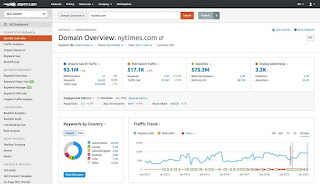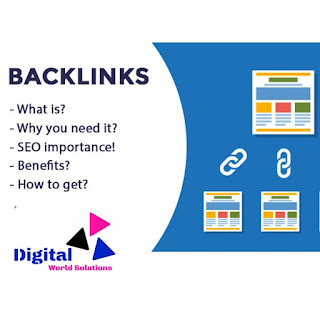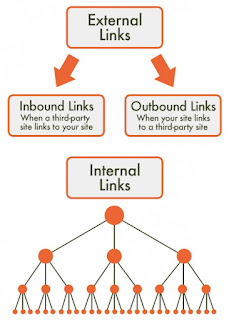The types of backlinks in SEO
When you get right down to it, there are only two sorts of backlinks: dofollow and nofollow. an individual reading an internet page will never see the difference between a dofollow and a nofollow backlink. The difference is within the ASCII text file . There’s a selected tag within the ASCII text file that determines how Google and therefore the other search engines view the backlink, which also determines the effect of that backlink on your SEO profile.
dofollow backlinks
Dofollow backlinks are the foremost common and valuable sort of backlink for SEO.
When you put a dofollow link on your website, you’re telling Google that the link is organic — as in, the target website didn’t buy the link—and that you’re vouching for the accuracy of the content at the opposite end of that link.
Dofollow is just telling Google and therefore the other search engines that “the content on the opposite end of this link is vital and will be noted.”
For example :
<a href="https://digitalmarketingtoolsfree.blogspot.com'> Click Here</a>
nofollow backlinks
Nofollow backlinks are less common. They’re also less valuable. They’re wont to tell search engines to ignore a specific link.
Google’s official definition of the nofollow tag is, “‘Nofollow’ provides how for webmasters to inform search engines ‘Don't follow links on this page’ or ‘Don't follow this specific link.’”
The HTML markup for these links is analogous to dofollow links, with one big difference — the “rel=nofollow” tag. If we used a nofollow link on our example from above, it might appear as if this:
<a href="https://digitalmarketingtoolsfree.blogspot.com" rel= "nofollw"> Click Here</a>
The percentage of dofollow versus nofollow links that an internet site has will vary. Google wants to ascertain an honest mixture of both for a healthy link profile.
The biggest difference between these two sorts of links is that Google places tons useful on dofollow links — which suggests they’re great for SEO. Nofollow links, on the opposite hand, are ignored by Google’s algorithm in most cases. meaning they’re rarely valuable for SEO.
Where do nofollow links come from?
Despite the very fact that nofollow links are less common than dofollow links, there are still many places on the web to select up nofollow links. You’ll most frequently get these sorts of backlinks from websites where you'll upload your own links and content, because those websites don’t want to vouch for the accuracy of your content.
Here are a couple of places that nofollow links commonly come from:
- Social media websites, like Facebook, Twitter, and LinkedIn
- Blog comments
- Content aggregation websites, like Scoop It
- Q&A websites, like Quora
- Forums, like Reddit
- Press releases
In addition to all or any of these , many high-authority websites, like Wikipedia and therefore the Huffington Post, use nofollow links to scale back the amount of spammy backlink requests they receive.
Nofollow backlinks are useful for SEO
Surprisingly, nofollow backlinks do provide some SEO value.
Google’s official stance on nofollow links is, “In general, we do not follow them.” meaning that Google doesn't follow the nofollow links most of the time, but there are certain circumstances during which Google does follow the links. It’s hard to mention what those circumstances are, because Google hasn’t shared that information. That's why the SEO community has done tons of testing to spot a couple of instances when nofollow links are followed.
High-authority websites
There’s some evidence that nofollow links from high-profile websites, like Wikipedia, can improve your organic rankings.
The thinking is that there are websites that Google completely trusts. Those websites are known for content that's extremely top quality . meaning if those websites are linking to a different website, that linked website is additionally valuable. therein case, Google will somewhat ignore the nofollow link.
It’s unlikely that they’re completely ignoring the nofollow tag in those cases. If you were to select up a dofollow link from Wikipedia, that might still be far more valuable than a nofollow link from an equivalent source.




